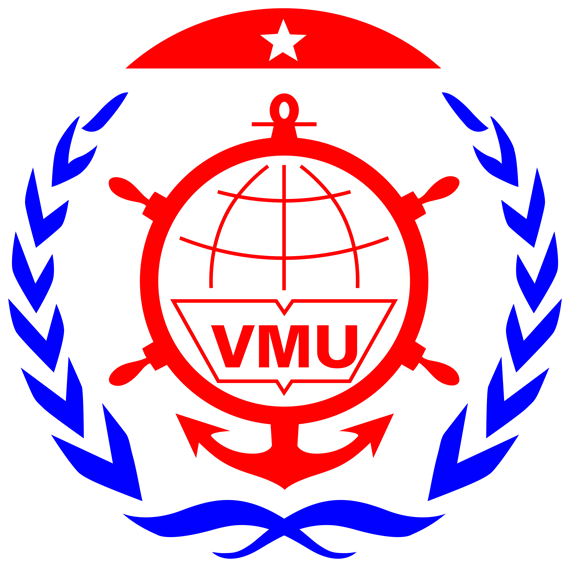1. Introduction
|
Program title: |
Bachelor of Electronics – Telecommunications Engineering |
|
Graduation degree: |
Bachelor's degree |
|
Study model: |
Full-time |
|
Total credits: |
137 |
|
Used language: |
Vietnamese |
|
Training duration: |
4 years (8 semesters) |
|
Responsible Faculty: |
Faculty of Electric-Electronics |
|
Website: |
|
|
Address: |
Room 811, 8th floor A6 Building, Vietnam Maritime University 484 Lach Tray - Le Chan - Hai Phong |
The Electronics – Telecommunications Engineering training program at Vietnam Maritime University, designed by the Faculty of Electric-Electronics, draws upon programs from various esteemed domestic and international universities. Regularly updated to align with industry needs and adhere to the Ministry of Education & Training and Vietnam Maritime University regulations, the program equips learners with essential knowledge, skills, and attitudes. It meets the Vietnamese National Qualifications Framework and international standards, preparing graduates to excel in the 21st-century workforce. Graduates of the program earn a bachelor's degree in Electronics – Telecommunications Engineering, with the ability to design, implement, and operate electronic equipment, telecommunication systems. They are dynamic, creative, and adaptable, ready to compete in the Asia-Pacific region and contribute to national development and international integration. Graduates are qualified for roles such as telecommunication network designing and optimizing engineers, network operating engineers, mobile applications programmers, IC designing engineers, electronic system designers, communication equipment programmers, maintenance, servicing, and repair of information equipment and marine instrumentation. The program ensures that graduates are well-equipped to can work at domestic and foreign businesses, corporations, groups, transmission companies, companies manufacturing and developing electronic products, air traffic control, marine instrumentation; mobile information companies, telecommunications service providers, data transmission companies, and the technical departments of radio television stations and excel in their respective fields.
The Bachelor of Electronics – Telecommunications Engineering program at Vietnam Maritime University offers a comprehensive education that prepares students for successful careers in the Electronics and Telecommunications industry. With a focus on both theoretical knowledge and practical skills, graduates are well-equipped to meet the challenges of the modern technological landscape.
2. Curriculum
The Bachelor of Electronics – Telecommunications Engineering program is organized into 8 semesters as follows:
Throughout eight semesters, students undertake a comprehensive curriculum that combines theoretical and practical learning. In Semester I, students gain foundational knowledge and skills through Algebra, which emphasizes problem-solving and Calculus with a focus on tools to solve engineering problems. General Physics 1 consists of two main topics which will provide students with neccessary knowledge about machenics and thermodynamics. Introduction to o Electrical and Electronics provides an in-depth understanding of the fundamentals of basic electrical and electronic devices, while General Law covers the importance of laws in daily life. Optional courses include Environment and environmental protection for explaining hot environmental issues in practice, Business Administration for basic knowledge of business administration, and Soft Skills 1 to build communication and teamwork abilities.
Semester II broadens students' knowledge with subjects like Mathematics for Electricity and Electronics, which develops solving some basic problems of the Electricity industry. Circuit Theory focus on basic laws of electric circuits and calculation methods in electric circuits in steady state, while Electrical Safety provides a firm grasp of the safety regulations and laws in the process of using and exploiting the power grid. Applied Informatics in Telecommunications emphasizes to build evaluation programs, signal simulation, information systems, and General Physics 2 consists of basic knowledge of electromagnetic field to analyze and calculate electric transmission, electromagnetic wave transmission. Optional courses include MS Office Suite for software proficiency, Basic English 1 for language enhancement
Semester III delves deeper into topics such as Electronic components, Digital Engineering sharpens knowledge of electronic devices and digital circuit, and Communication theory provides the analysis to the characteristics of signals and information systems. Optional courses include Basic English 2 and C programming Engineering
Semester IV explores advanced subjects like Electronic circuit engineering, which focuses on analog circuit engineering. Digital signal processing address analysis of digital systems for discrete signal processing, while Electromagnetic fields and Propagation concentrates on basic wave propagation methods in radio communication. Microprocessor Engineering delves into hardware functionality, and Basic English 3 strengthens language skills. Optional courses include VLSI and English for Electrical Engineering.
In Semester V, students study Digital Information Engineering to enhance their understanding of signal processing techniques in the system. Electronic measurement engineering teaches measuring devices and methods for measuring parameters of signals and electronic circuits. Antenna engineering provides the Analysis of the structure and technical characteristics of ultra-short wave, short wave, medium wave, and long wave antennas. An Electronic Engineering internship provides practical industry experience. Code Theory and Computer Network are optional courses that enhance students' technical expertise.
Semester VI focuses on specialized topics like the Microwave Engineering, which teaches transmission and processing of microwave energy flows . Radio transceiver teaches structure and characteristics of radio communication systems, and Television Engineering covers development of television systems in the world. Project 1 developes the practice professional knowledge, link knowledge of Digital Engineering, Microprocessor Engineering. Mobile Communication Systems encourages Basic techniques in mobile communication systems, while optional courses such as Simulations of Communication Systems or Principle of automatic control offer additional expertise.
Semester VII emphasizes cutting-edge technologies and systems. Maritime Communication system covers GMDSS and non-GMDSS, while Satellite System and Marine Navigation System explore marine navigation and positioning system. Embedded Systems provide design, interface, configure, and program embedded systems. Project 2 developes ability to practice professional knowledge, link knowledge of the subject groups of Analog electronics, digital electronics, digital signal processing, digital communication engineering.
In the final semester, students consolidate their learning through practical applications. The Graduation Internship immerses them in real-world challenges, and the Graduation Project showcases their ability to integrate and apply knowledge from previous semesters.
